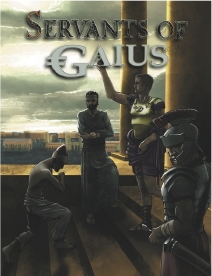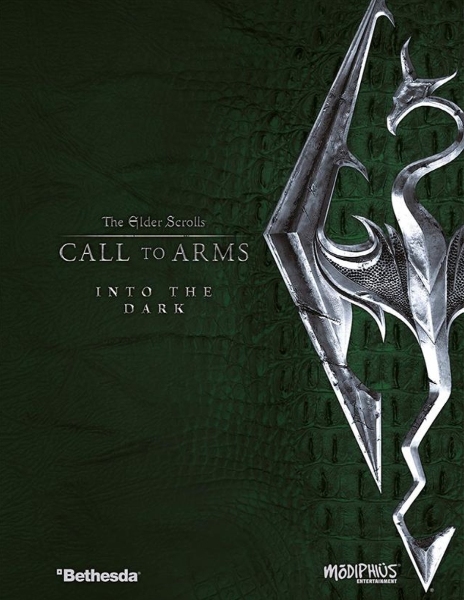Servants of Gaius
Servants of Gaius is an alternate Ancient Roman system written by Brendan Davis and published by Bedrock Games, currently supported by Avalon Games.
By Cape Rust

Servants of Gaius is a storytelling game that is light on rules and heavy on intrigue. You don’t have to be an ancient Roman history buff to enjoy this game. In fact because it is an alternate history, a certain lack of knowledge about ancient Rome might help, especially if you tend to over-think things.
CONTENT
Servants of Gaius is 111 pages long with 4 pages worth of character sheets. This core rulebook includes the complete rules system, an overview of Roman society circa 38 A.D., Statistics for prominent characters, Monsters, critters and other mythical threats, Rules for gods and rituals and a map of the known world in 38 A.D.
OVERALL
The combination of Bedrock Games’ rules light Network System and an interesting concept create a unique game that has the gumption to fill weeks and weeks of your gaming group’s time. Because this is not your run-of-the-mill hack and slash game, it can easily be that breath of fresh air for adventurers who have grown weary of slogging through hordes of mindless minions.
RATINGS
Publication Quality: 8 out of 10
When I first viewed the cover of Servants of Gaius I was not impressed, while well-done it looked way too dark. After reading through the rules and understanding the overall concept of the game, I understood how well-done the cover really is. The player characters are Servants of Gaius, a shadowy organization that fights the minions of Neptune to preserve the Roman Empire. The dark cover includes some iconic Roman imagery and really reflects the nature of the Servants; well done! All of the interior art is black and white, which was a good choice. The interior art style is reminiscent of much of the art I have seen in Roman documents, which is really cool. Bedrock games went with what I’ll call a ¼ border on their pages. They alternated this ¼ on both sides of adjoining pages so the reader gets the impression of a lower half border if the pages are viewed book style. The art style worked well until the rule book got to the equipment section, this is where things went south. The armor and shields looked OK but the weapons looked like they had been drawn by a skilled 8th grader doing a visual aid for a book report. My only other complaint was that there were a few omissions of letters in the body of the text that even a troglodyte like me caught. However,the book is a pleasant read and the chapters are laid out well.
Mechanics: 10 out of 10
Bedrocks’ The Network System is interesting. It is a hybrid, amorphous system that owes a great deal to White Wolf. I find this setup to be just right for storytelling games. Systems like this give the players enough mechanical support while allowing, and if need be forcing, characters to be more than just a sheet of stats. I called The Network System amorphous because as Bedrock Games explains, it conforms to each of the game systems that they place it in. In the rules as written, the characters should never need more than 6D10. I appreciate this as I am currently involved in a game that requires huge amounts of D6s for dice pools. I love tossing polys, but there is a point where things get a little stupid.
Value Add: 9 out of 10
When it comes to value, this product is dual hated! Here is what I mean, the folks at Bedrock unashamedly admit that they want to produce quality affordable games and that by keeping their products below the 120 page count they can achieve those goals in a complete rule book that has a suggested retail price of $19.99 USD.
Overall: 9 out of 10
There are so many small touches to like about this game whether it is the historical advice of 3 PhDs, The Network System or the outstanding suggested further/background reading list. I was happy to see downloadable versions of the character sheet and a compiled list of all of the tables in the game at www.bedrockgames.net This game would be really interesting for a high school history class to play then dissect what is alternate about the history of Servants of Gaius. While there were a few flaws this is a well thought out game that was made by people who love gaming and have a passion for Roman history. And while denique non omnes eadem mirantur amantque, I admire this game.


